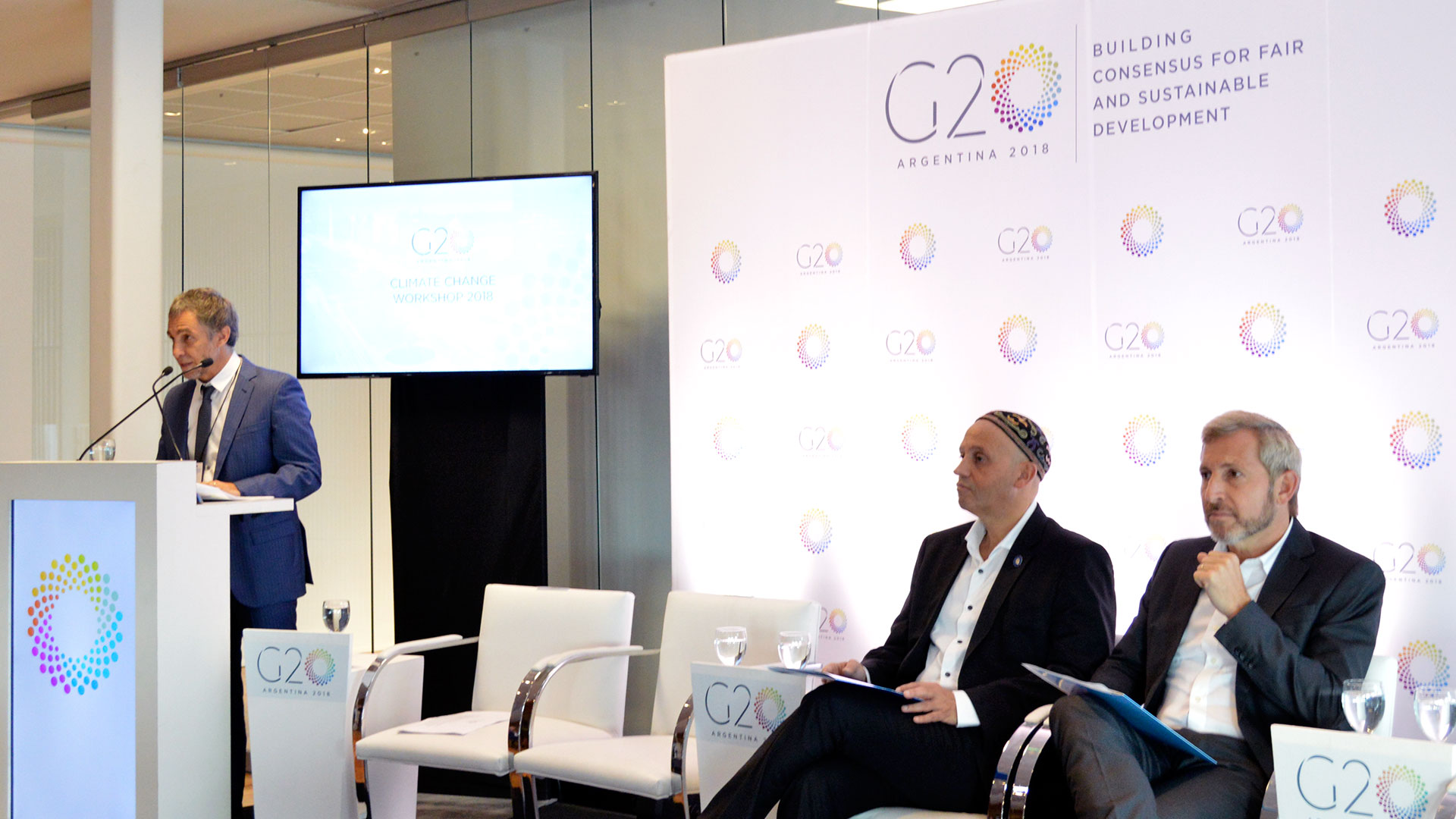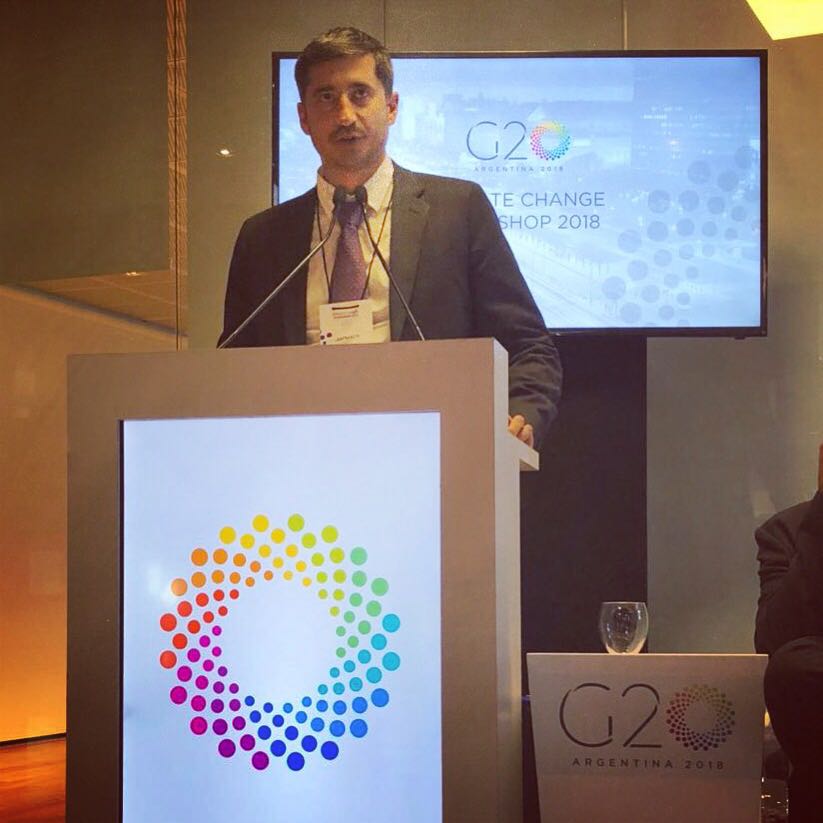In anticipation of the first meeting of the working group that will address this topic, the engagement groups participated in a workshop on it
On April 16 the first workshop of the G20 Climate Sustainability Working Group (CSWG) took place at the CCK in Buenos Aires. The meeting included the engagement groups related to the topics on the CSWG’s agenda. Gabriel Lanfranchi, co-chair of Task Force 2 on “Climate Action and Infrastructure for Development”, represented the Think 20 (T20).

Sergio Bergman, minister of the Environment and Sustainable Development, and Rogelio Frigerio, the minister of Interior Affairs, Public Works and Housing, opened the event. “In Argentina, civil society, the scientific sector, the private sector and workers have an active voice in climate change policies. That’s why in our presidency we have decided to create a group specifically for Climate Sustainability and we hope that future presidencies can sustain this topic at the highest level in the G20,” said the first official.
The morning was when the presentations on adaptation and climate change resilience took place, which focused on the impacts and the associated costs of these phenomena. The drafts of the working documents commissioned by the Argentine presidency were also presented, which covered topics such as resilient infrastructure and the impact of climate change on the world of work.The possibility of job loss was underlined as one of the negative effects, as well as the need to evaluate the creation of new posts linked to resilient infrastructure.
During the afternoon, sessions took place on long-term low-carbon strategies, with emphasis on the approaches and the methodologies for its design, which will be key to reduce greenhouse gas emissions in the long term. The challenge of financing sustainable infrastructure and the interrelationship between the 2030 Agenda and the Paris agreement towards achieving sustainable growth was emphasized. The main findings of each of the draft commissioned documents were also presented to the United Nations Environment Programme (UNEP) and the United Nations Economic Commission for Latin America and the Caribbean (ECLAC) by the CSWG concerning the international financing to implement the National Determined Contributions (NDC).
Then it was the engagement group’s turn, the C20, Y20, L20 and T20, who addressed the expectations they had with respect to the CSWG. Gabriel Lanfranchi said that cities represent 70% of global emissions of greenhouse gases (IPCC 2014) and that in them is where the major impacts of climate change will be felt. He referred to the need to count on local governments as key actors in the process of stimulating the design and implementation of low-carbon development strategies and encourage investment into resilient infrastructure; always seeking existing synergies between mitigation and adaptation actions.

The closure of the event was carried out by Carlos Gentile, secretary of Climate Change and Development and president of the CSWG, who highlighted “the collective efforts in the fight against climate change to fulfill the objectives of the Paris Agreement, and the G20 is relevant in that regard.”
The Climate Sustainability Working Group came together on the 17 and 18 of April in Buenos Aires. Its next meeting will be on the 29 and 30 of August in Iguazu, and the day before there will be a workshop on the Efficiency of Resources.
